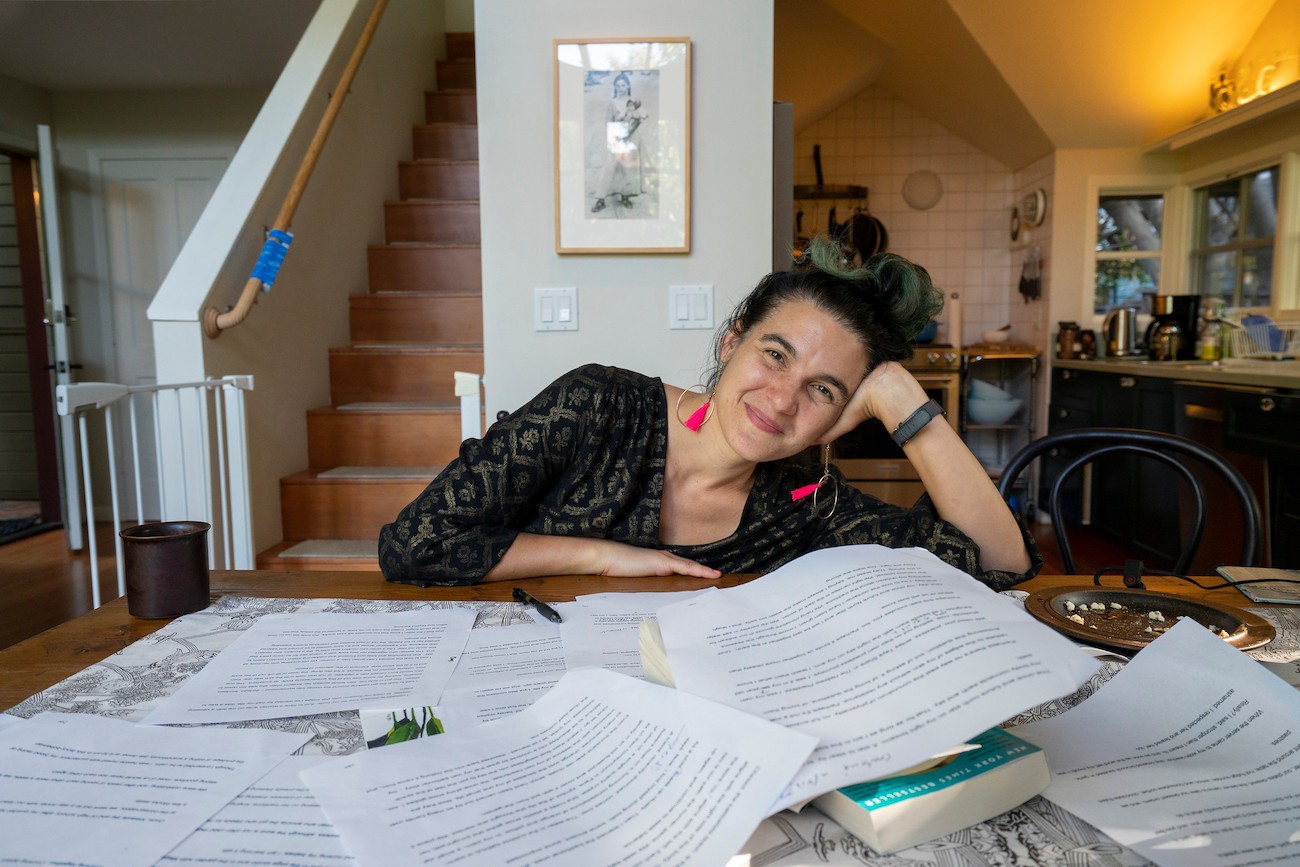It has been nearly four years since we began The Peleh Residency, our residency based in Berkeley, CA that offers artists across all genres the time, space and support to practice their craft. It was designed to accommodate artists with families, and the residency provides a space apart for retreat, reflection, and art-making. It is an opportunity to foster new collaborations, audiences, and connections, while specifically supporting artists in pursuit of their craft while continuing to be parents and caregivers.
The Peleh Residency is one of the few fully-supported, specifically family-friendly residencies in the country, and it emerged from the vision of the Peleh Fund to support both the creative process, and a new kind of cultural infrastructure that honors a commitment to family and work. The program reflects two core beliefs of its founders. First, that the universal experience of caregiving and working must be acknowledged and supported by our institutions if we are to thrive as a community. And second, that art and culture have the power to cross boundaries between people and ideas, bringing historical identity into modern life in new ways.
A number of years after this program began, we asked artists who were part of the residency to reflect on their experience and how this focus on art, family, and caregiving has impacted their lives and work. Over the next few months, we will be sharing these reflections on our Magazine, hoping to present a multi-voiced picture of this program and the impact of this approach to supporting artists.
The first reflection is from our first artist-in-residence, Alicia Jo Rabins.
This is the only residency I’ve been able to do since my kids were born eight-and-a-half years ago. Since I already travel a lot for work, my days away are usually maxed out. I wouldn’t have left my kids just to write for two weeks, and wouldn’t have been able to bring them without child care, which the residency afforded me. I didn’t have to choose between being an artist and being a parent. I felt I could be the parent I wanted to be, and the artist I wanted to be. That was radical.
My residency was a bit different than the others in that I had two shorter visits, the first for two weeks and the other for ten days. The first visit I spent working on my book of poetry, Fruit Geode. I wasn’t quite sure what these poems were crystallizing into, and I needed to process four years or writing. When I got to the residency I remember having two piles, one for Fruit Geode, and one for another book, still in progress. It’s when I had culled the work into the two piles that I could really identify the heart and soul of Fruit Geode, figure out the order of the work, and so forth.
For the second visit, I wanted to work specifically on a memoir. During that time I had an amazing move forward on this seven-year project. I went through 70,000 words, and among other things changed the entire book from present to past tense. I went through every single sentence. During the course of that I made many other changes as well.
Many parts of my artistic practice I can do in short periods of time when I’m home, and I don’t always need a period of unbroken concentration to move forward. But some parts of my process require it, and I used the residency period very consciously on those pieces. For the memoir, for instance, I needed that unbroken focus to stay inside of the book; to hear it speak to itself, and get at the consistency of its voice.
The house itself was extremely helpful, having a living space in the front and a work space in the back. In the studio out back I was able to use the floors and walls really well, especially being able to tape stuff to the walls. In Portland I lived in a one-bedroom apartment, and had no walls to speak of. And so the residency studio felt like a sacred, creative space, separate from the domestic space.
It would have been heartbreaking for me to work on a book about parenting, but across the country from where my kids were. To immerse myself in the book, and then to parent in the evenings, was invaluable emotionally.
My daughter Sylvia wrote her first words on the back steps of the house. She had found some chalk, and when I came over to her I saw she had written one word: Mama.


